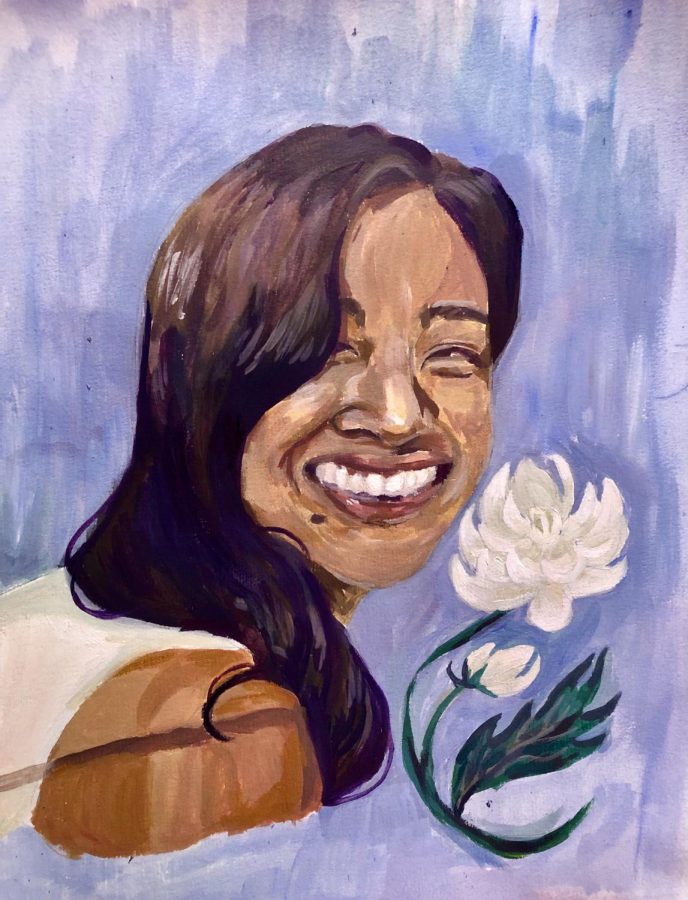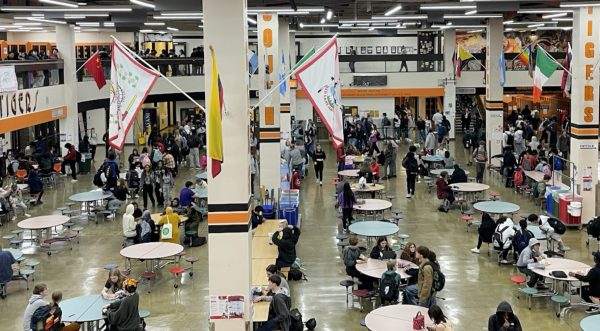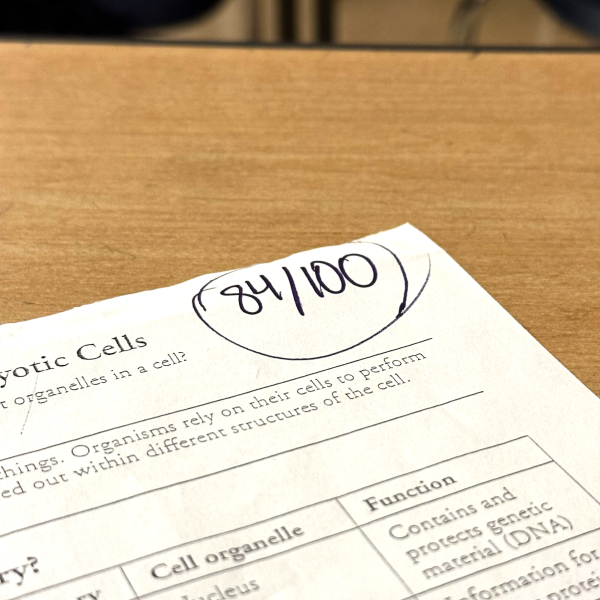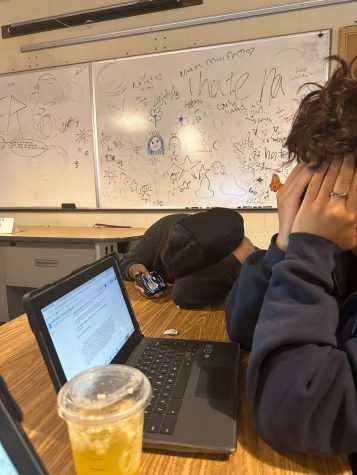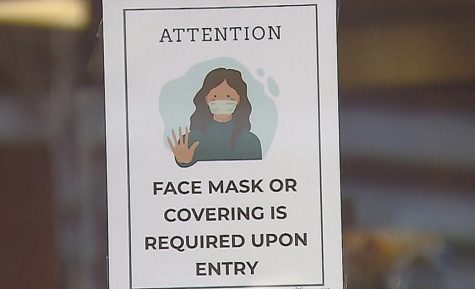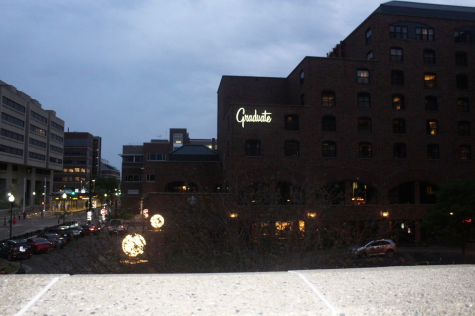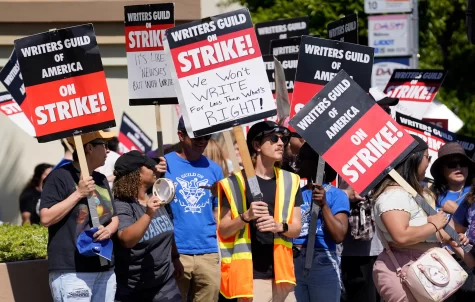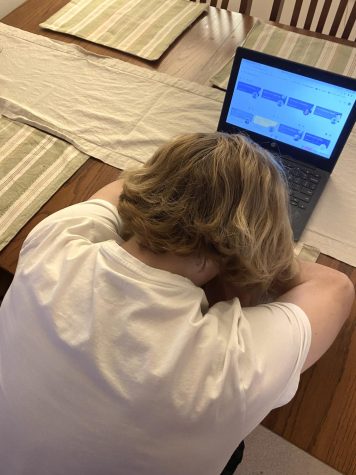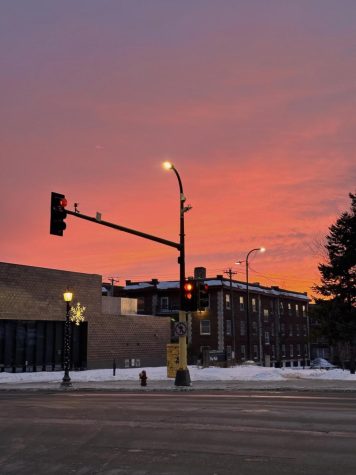Hate crime or not? Why the Justice System is failing Asian Americans
A portrait of Christina Yuna Lee, who was heartbreakingly murdered over a week ago.
February 22, 2022
Content warning: this article reflects upon traumatizing events that have happened to the Asian community. Please proceed with wariness as you read this article.
Last March, a gunman shot and killed 8 people in 3 separate spas. 6 of them were Asian women. In January, Michelle Go was standing on a subway platform when she was pushed into an oncoming train and killed. Most recently, Christina Yuna Lee was stabbed to death in her New York apartment. She was only 35 years old. All 3 of these horrific incidents have much in common. They are results of anti-Asian racism and acts of violence against Asian women. What stands out to me most, however, is the reaction of law enforcement. The reality of the matter is that these 3 crimes have not been labeled hate crimes, despite overwhelming evidence. The failures of law enforcement (and the justice system) is an injustice that has always negatively affected people of color. We can recently see this with the extremely short sentence Kim Potter was given for murdering Daunte Wright.
Why should these be considered hate crimes? I would like to define what a hate crime is first. According to the US Department of Justice, there are two factors that must be considered in determining a hate crime. The first one is that a crime must be committed, for example, assault or vandalism. This is different from a hate incident, which is an act of bias that isn’t a crime. The second factor is that a hate crime must be an act of bias. Hate crimes can be committed on the basis of race, gender, color, religion, national origin, gender identity, sexual orientation, or disability.
Under this definition, I will first look at the Atlanta shooting. The gunman committed a hate crime on the basis of both gender and race. The shooter claimed it was not racially motivated, and that he murdered the people out of “sexual temptation.” This raises two important questions: 1) If someone claims to have “sexual temptations,” and then proceeds to kill 7 women, is this not an act of gender-based violence? 2) Should we take a person’s word when they say that their killing spree was not racially motivated? The shooter traveled about 40 minutes from Acworth, GA to Atlanta, GA to finish his attack. There was a 40-minute difference between the first Asian-owned spa he fired in and the second. There were at least 10 other spas off the highway in between these two points, most of which were not Asian-owned. If the killer was not motivated by race, then why did he choose to travel those 40 minutes? He clearly knew what he was doing.
Events such as the Atlanta shooting have impacted Asian students at South. “After discovering these stories against Asian American women, especially against young Asian American women, it’s frightening, it’s scary, it feels like there is nothing we can do to help remedy everything that’s been happening,” said junior Mia Lambert.
So why was this not considered a hate crime? The truth is that the justice system and mainstream media is not doing enough, and really has never done enough, to protect Asian Americans. The most obvious example of this failure was the murder of Vincent Chin back in 1982. Chin, a Chinese American, was beaten to death by two white autoworkers who were enraged by “losing their jobs to Japanese people.” The state courts failed to charge them with a hate crime. Disappointedly, the two men were acquitted of the murder. The two men eventually received federal hate crime charges, but only one of them was found guilty. Adding to the insult of Chin’s case, the verdict was overturned 3 years later.
Chin’s case set a precedent for hate crimes against Asian Americans. By not considering hate-crime-level offenses as hate crimes, it perpetuates stereotypes that Asian Americans don’t face discrimination in America. By downplaying the assaults and killings that we have seen recently, the justice system and media are successfully painting Asian Americans as the “model minority.” This is harmful because it makes the non-Asian community believe that Asian Americans are doing fine when in reality, many of us are not.
For Asian Americans, the Atlanta shooting and the Vincent Chin murder are two of the most traumatic events to happen in the last 50 years. Now in the present day, fresh incidents slash at the wounds of the Asian American experience.
I want to next look at the killing of Christina Yuna Lee. Lee was stabbed 40 times by a stranger who followed her into her Chinatown apartment. Authorities have been hesitant to call this attack a hate crime as the suspect remained silent during interrogation and expressed no anti-Asian sentiment. I believe that his actions directly indicate racial bias. As of the year 2000, 66% of Chinatown residents were Asian. If this wasn’t a hate crime, then why was it committed in the part of New York City with the largest concentration of Asian people? Overall, there is not much public information on this case yet and the investigation is still going on. However, it is clear that the recent spike in AAPI (Asian American Pacific Islander) hate incidents needs to be taken into consideration while assessing this case.
All 4 of these crimes also spark questions about the relationship between AAPI hate and gender-based violence. “There is this casually racist idea that Asian women are just so submissive, and they won’t fight back, and they are peaceful and full of tranquility, and they’ll do whatever you tell them to… The kind of brutality that’s experienced by Asian American women, it’s so exponentially harmful because of those connotations,” said Lambert.
Attacks like this leave me worried for the Asian women in my family. The AAPI hate pandemic has disproportionately affected Asian women, and it has left me tired. We cannot let these murdered Asian women just turn into nameless Asian faces. Additionally, the lack of justice that Asian Americans face from Vincent Chin to Christina Yuna Lee has left me broken and weary. Regardless of whether justice is served or not, we at least must know what is right and wrong.
AAPI hate must evade the mainstream no more.
An in-depth story about the effects of anti-Asian racism on Minneapolis Public Schools and South High School will be released in March. Please stay tuned.

